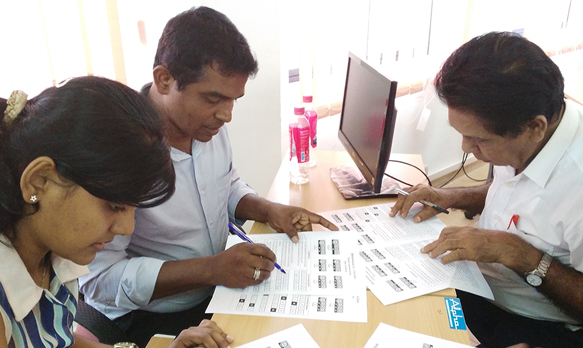
Open Educational Resources (OER) are fast becoming a major part of the Education landscape especially with the new thrust towards “open”. Conceptually, OER are a sensible and cost-effective way of incorporating quality material, including multimedia, into a particular teaching and learning scenario. Realistically however, this is easier said than done. To be able to fully harness the potential of OER, you need to understand some of the guiding limitation of the philosophy. The following five tips will get you started:
1. Make the effort to change your mindset
“Open” doesn’t come naturally to many of us. From childhood, many of us have been accustomed to living in closed spaces whether it be our bedrooms at home, our classrooms at school or our offices at work. When considering academics, this closed mindset continues to overshadow our output in the form of number of intellectual contributions which we have made that should not be used by others without our permission. Simply put, many academics believe that their intellectual prowess is defined by copyright. This is true of many academic Institutions as well who believe that opening up their intellectual property would be similar to putting their crown jewels on public display with no security.
If you are serious about adopting the philosophy of OER, the first step is to convince yourself that being open will only enhance your academic standing. For example, publishing your research work in an open access journal will fare you better in terms of visibility than publishing in a closed journal. Similarly with OER, your work will be used, reused, revised, remixed and retained by many while always ensuring that you get the credit for it. It’s a simple numbers game really where more exposure to your work results in increased academic visibility for you. Get to know the 5Rs of OER at http://opencontent.org/blog/archives/3221
2. If you take, remember to give back
OER are not just about taking free stuff and using it in your own work. Many individuals as well as institutions are guilty of this. Yes, the philosophy of OER allows you to freely take work by others and use it in your own work, even commercially, with just an acknowledgement. However, this only makes you a partial OER practitioner as you are not contributing to the open pool of resources. If you believe in an open mindset then you must remember to share back your own work under a free license. See what open means to COL at https://www.youtube.com/watch?v=tEwjVI9-lfM
3. Know your licenses
What you can and cannot do with an OER depends on the license it was released under. Many practitioners take for granted the multiple levels of freedom or restrictions dictated by different licenses. Not all OER can be readily mixed and matched to create the ideal derivation for your particular teaching and learning requirements; it’s not that simple. In this regard, knowing your licenses and what they allow you to do will save you a lot of headache down the road in your OER initiatives. The Creative Commons is the de facto license scheme used by many OER initiatives due to its simplicity in use, robust legal code and widespread acceptance. https://creativecommons.org/licenses/ is a good place to start your journey towards OER practice.
4. Plan ahead
Failing to plan is planning to fail holds true for OER as well. Before you, as an individual or an institution, decide to go down the OER route, you must decide what practical changes you are willing to live with. For example, if you believe that others shouldn’t make money out of your work and that they should share back what they have derived, you will decide to license your work under a CC BY-NC-SA license. However, this decision will seriously limit the number of OER available to you for reuse/remix and make your work less open/useful to others questioning your rationale for going OER in the first place. Therefore, be certain about the license and format you will release your work under before starting. Play the OER Remix Game at http://opencontent.org/game/ to see how you fare. Once you are certain, it becomes much easier to search and locate resources which match your requirements.
5. Practice first, policy will follow
You don’t necessarily need a policy directive from your Institution to go embrace the concept of OER. In most cases, policy will follow voluntary practice. Your pioneering work in OER will encourage your institution to implement the necessary policy frameworks to assist you, protect you and guide you in your journey towards a more open culture. If you feel that OER is a philosophy you believe in, just go ahead and practice it. Let organizations like COL work with your institution and government to put in place the necessary guidelines http://oasis.col.org/handle/11599/60.


